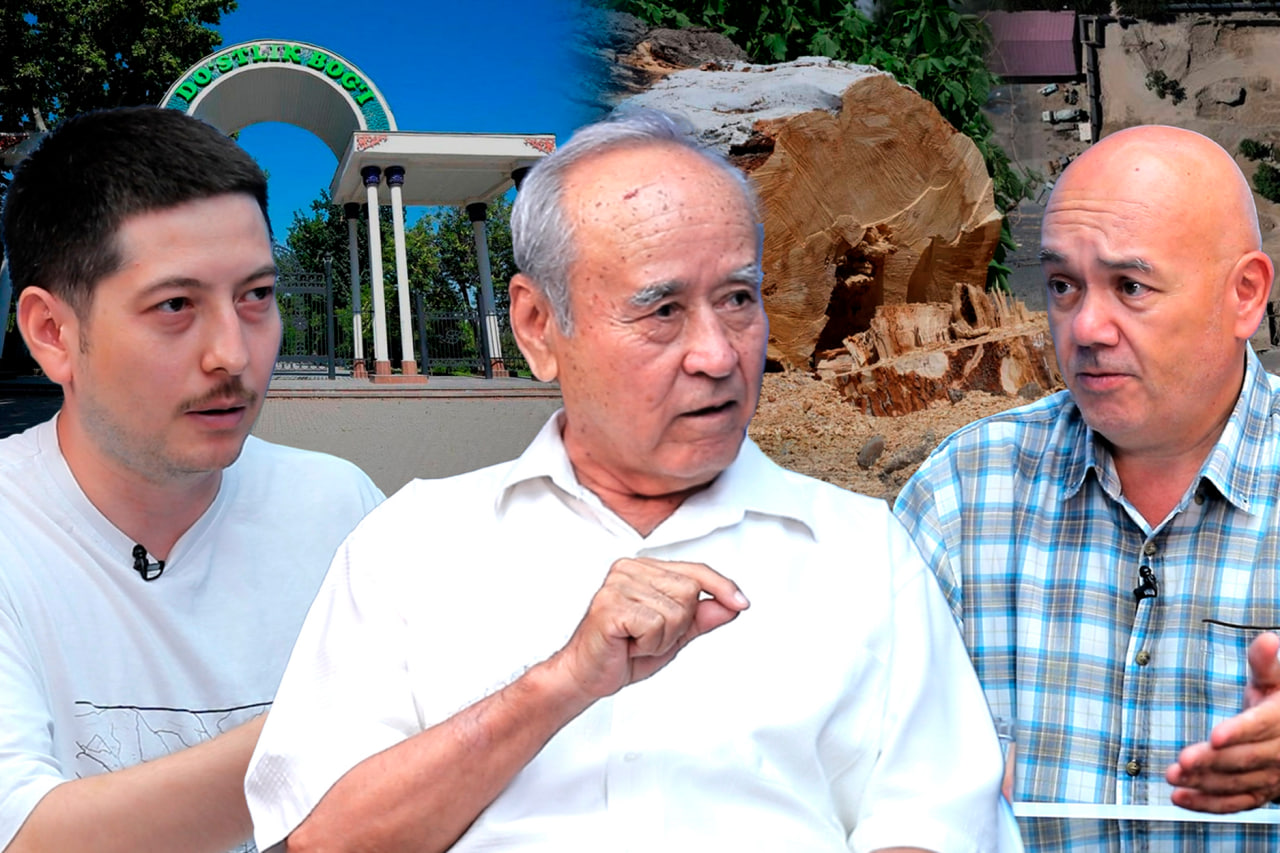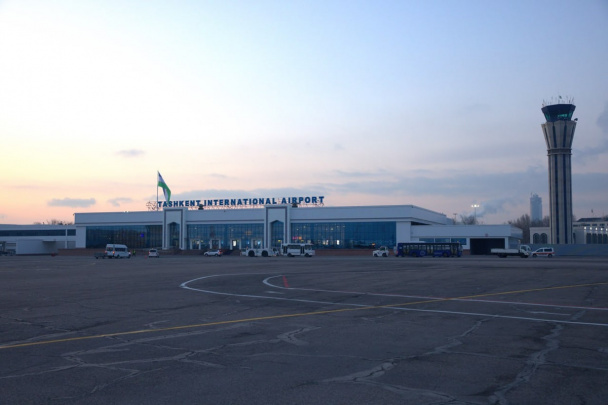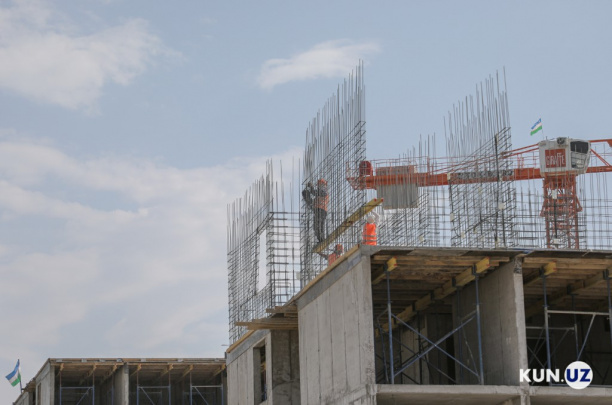Privatizing green zones: A threat to Uzbekistan’s urban future
The transfer of green zones, school, and kindergarten territories to private businesses has long been a troubling issue for residents. Experts consulted by Kun.uz, including a sociologist, an urban planner, and a community activist, express deep concern about this trend. They warn that it risks downgrading cities to the level of villages, negatively impacting people’s behavior, increasing social stratification, and deteriorating the public’s social well-being. They emphasize that the state must act as the primary steward of social infrastructure.

During a recent meeting chaired by the president, the practice of allocating green areas to entrepreneurs for non-public purposes was sharply criticized. In recent times, the sale of social facilities and public assets to the private sector has sparked widespread discussions across various platforms.
What problems arise from the continuation of this trend? When did it begin? And how does the reduction of such facilities affect the appearance and character of cities?
To address these questions, Kun.uz spoke with several experts, including sociologist and ethnopsychologist Mahmud Yuldoshev, community activist Alisher Nasimov, and urban planner Iskandar Soliev. Below is a summary of their insights.
“City infrastructure shapes residents’ behavior” – Sociologist
Mahmud Yuldoshev began by explaining how urban centers develop as cities. He noted that when infrastructure includes elements that positively influence societal progress, these factors accumulate over time, elevating a place from a village to a city.
“If we start dismantling the essential components of our cities’ infrastructure – the elements that define urban life – we risk regressing our cities to the level of villages. Conversely, by developing necessary infrastructure and networks in villages, they can evolve into cities. For example, a large village without a public bathhouse, teahouse, or recreational spaces remains a village.
If you can step out of your home in the evening, walk with a neighbor to a park, and relax in the fresh air, that place begins to feel like a center. Gradually, such spaces transform into cities,” he said.
Yuldoshev believes that green spaces and recreational parks are not only vital for society but also a key factor in the state’s development.
“City infrastructure influences residents’ behavior. Walking courteously, helping a stranger who’s lost by pointing them in the right direction – these are behaviors shaped by that culture,” he added.
“Access to parks and green spaces is a human right” – Urban Planner
Urban planner Iskandar Soliev discussed the impact of diminishing social facilities, such as educational and medical institutions, as well as green spaces, on a city’s character.
He explained that one of the key conditions for a city’s healthy development is creating spaces for daily necessities – learning, working, and leisure. Soliev expressed concern that Uzbekistan is regressing in this regard.
“The reduction of parks, the privatization of school and kindergarten territories for other construction projects, or the conversion of green spaces within neighborhoods into community buildings or offices is becoming common. The decline of these zones, along with cultural facilities like theaters or cinemas, which have also decreased over the past 30 years, is not a positive signal socially,” he said.
Soliev also highlighted cases where local authorities neglect parks, allowing them to fall into disrepair deliberately, only to sell them to entrepreneurs under the pretext of “improvement.”
“They often argue, ‘If no one invests in the park, we can’t maintain it in good condition.’ As a result, nearly all parks are being privatized. They’re left abandoned without funding or care, and then authorities claim they need investment,” he explained.
Soliev stressed that, as a socially oriented state, Uzbekistan’s primary duty is to prioritize the social sector. “Access to parks and other green spaces is a human right,” he asserted.
“Even courts lack the power to intervene” – Community Activist
Alisher Nasimov, who has been representing the public in court cases involving the sale of green zones to businesses for the past four years, shared his observations.
According to Nasimov, much of Tashkent’s land has been parceled out and plundered, a trend that began during the tenure of former mayor Rahmonbek Usmonov (2011–2018) and has continued under current mayor Shavkat Umrzakov. He noted that this can be verified by comparing historical data on Google Maps.
“On July 1, 2024, November 29, 2024, and April 11–15, 2025, Tashkent Mayor Shavkat Umrzakov issued covert decisions transferring over 200 community land plots to entrepreneurs secretly. I have evidence and copies of these decisions.
Many neighborhoods are affected. For instance, I’m currently handling at least four or five cases. In Uchtopa District’s 26th sector, a mayor’s decision to build a community facility was deemed partially invalid by Judge Olimjon Shamsiev. Last week, a similar attempt was made in the Beshyogoch neighborhood, which also has green spaces and tree groves. Judge Kuvondik Sultanov ruled that decision invalid as well. We have three or four more cases like these,” Nasimov said.
He noted that such actions are met with negative public sentiment, fueling protests. Nasimov believes authorities are neglecting to consider the public’s concerns.
Furthermore, he pointed out that recent court rulings aimed at returning green spaces to the public are not being enforced.
“Judge Shamsiev issued a ruling that should have halted construction work. The ruling, issued in early March, was assigned to the Bureau of Compulsory Execution (MIB) and the developer. Yet, it hasn’t been enforced. The MIB didn’t impose fines or take further action. Eventually, fines were imposed on both the MIB and the developer. Even the courts lack the power to intervene,” he said.
According to Nasimov, these practices should have been explicitly prohibited in the master plan approved by the government in December 2024 under Resolution 880. However, despite claims that the plan was developed with experts, these issues appear unaddressed. The urban planner also shared similar concerns during the discussion.
Related News

15:01 / 08.08.2025
Six new international airlines to enter Uzbek market as aviation sector grows

20:06 / 05.08.2025
Uzbekistan, Turkmenistan, and Azerbaijan hold trilateral meeting to discuss regional cooperation

16:25 / 02.08.2025
Senate sends official inquiry to Cabinet of Ministers over widespread illegal construction

15:00 / 28.07.2025



